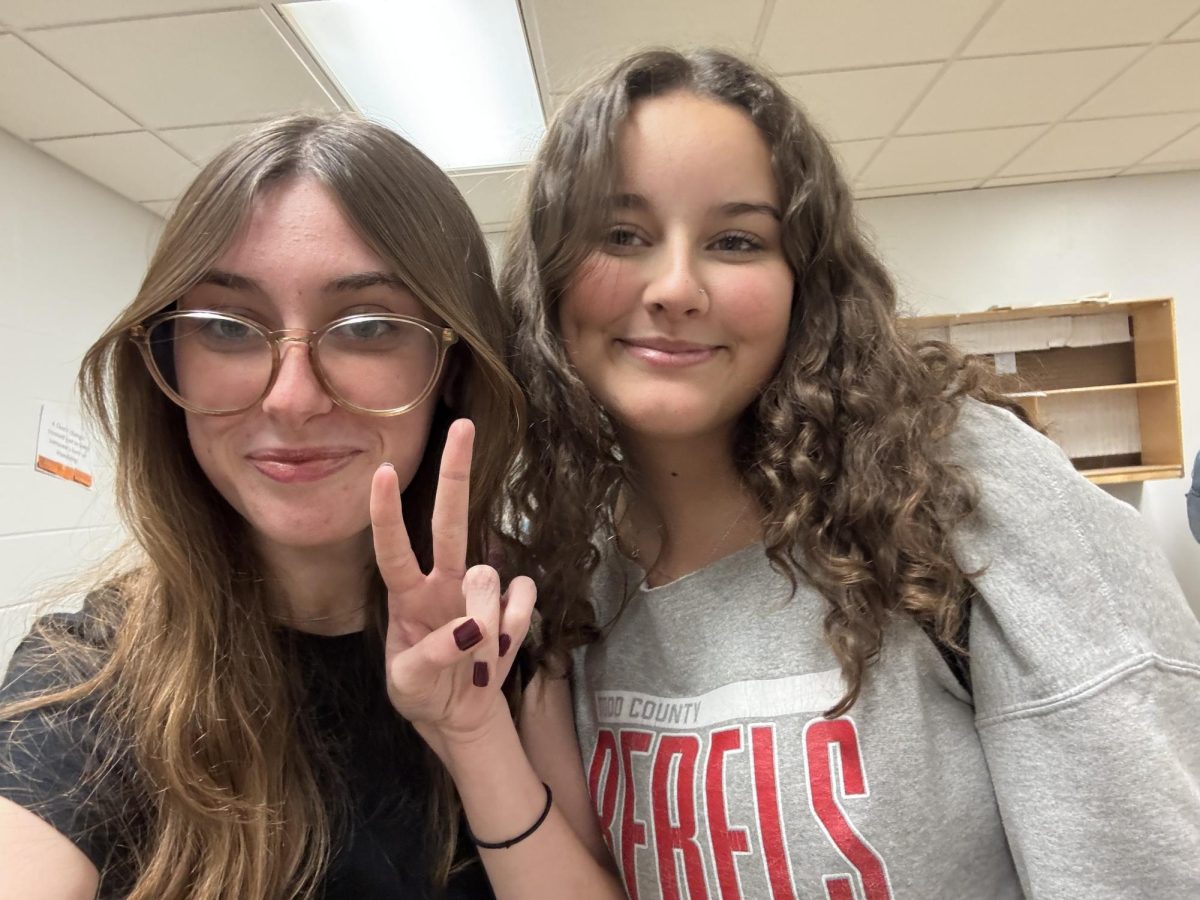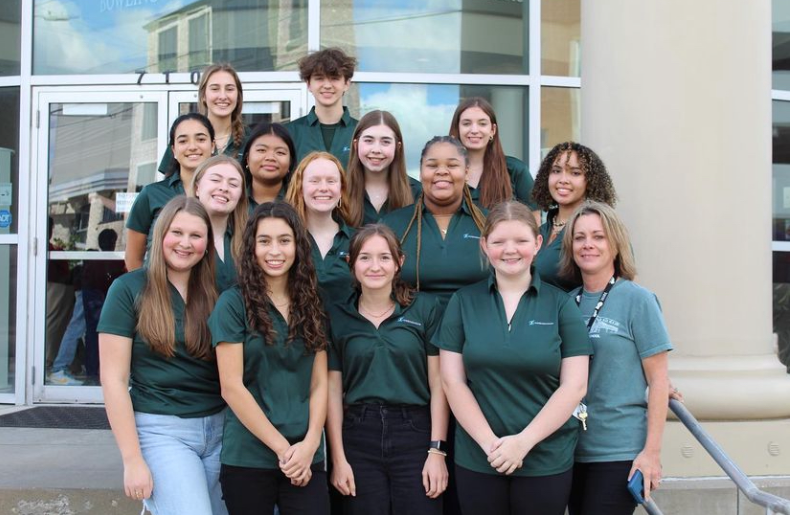As of 2022, 27% of students in Kentucky have been diagnosed with depression. Kentucky is the second worst state for overall depression diagnosis in the United States. Although Greenwood High School (GHS) is a well known and popular school in both Bowling Green and Kentucky, there are still many students that suffer from mental illness – and more so depression. LeAnn Freeman, one of GHS’s counselors, gave insight on what she sees in the school relating to depression. Three students, Clara Willis (9th Grade), Kadyn Winson (9th Grade), and Kendell Webb (9th Grade) gave their thoughts from a student’s perspective.
Webb, a freshman at GHS, shared that her dad suffers from PTSD and depression. He was in the army, and his mental health was affected due to his serving. She explained that one minute he can be happy and the next very quiet and distant. She believes that the main cause of depression in school is bullying. Webb stated, “someone’s mean words can cause depression because the victim just can’t escape it.” Moreover, Webb spoke on her opinion about how she would change the numbers of depression (decreasing them) in the school. She elaborated that she would do more investigating to make sure the bullies are removed from the school and would work on keeping the victims and recovering them. She has learned about depression in health class, but wishes they had shown examples from real life people that have dealt with depression. She wants to know personal things compared to just the facts. Her thoughts on the signs are, “they are very quiet and want to be alone most of the time. Their style changes to a darker style and they lose interest in what they once had it for.” Her estimate is 60% of people struggle with depression because there are many people that can bring down others thus causing depression in a high number of people.
Willis, a freshman at GHS, has never experienced depression between herself or others she knows. She recalled that some signs of depression are tiredness and mood swings. GHS or any of her past schools haven’t taught her about depression, but she wishes that she could know more about the signs to help friends and others; although, she has been given minimal information about depression through social media awareness. Willis elaborated that wishes she knew more about depression because it is a problem in our school and community that needs to be further addressed. If she or a friend were in need of assistance, she would go to a guidance counselor in the school, but she would personally go to Ms. Freeman because that is her counselor. (GHS has 3 guidance counselors; based on your last name, you speak to different counselors) She thinks our school’s resources are reliable, but she wishes they were easier to reach. Willis gave the statement, “I am blessed to not have had to deal with depression between me, my friends, and my family; however, I wish that it was more well known and less ‘embarrassing’ to have. It seems like it’s harder for some to deal with going to see someone rather than just dealing with the depression itself.”
Winston, a freshman at GHS, has not experienced depression, but she has seen it throughout the school and on social media. From prior teachings, she explained that some of the signs of depression are being in a sad mood, not showing interest in things you used to enjoy, and feeling like you are alone. The school has made her aware of depression because she was to watch a 30 minute video about depression. This is also how she knew about some of the signs. Winston elaborated, “Depression is a serious matter because it has an effect on the person in a bad way and they can take it out on someone else.” She thinks GHS teaches and spreads awareness well when dealing with depression. She stated, “The videos we watch are very beneficial.” She thinks depression occurs because people affect others with their actions and words. Winston ended with, “Always be kind to people; you don’t know what they are going through.”
Ms. Freeman, GHS guidance counselor (last names P-Z), explained how depression goes untreated with teenagers most of the time; moreover, sometimes students are depressed, but their parents think it is normal teenage behavior. Some signs of depression are feeling a lack of motivation for a long period of time – not just sad days here and there – a longer lasting sadness, withdrawal from relationships, and stopping activities that used to give you joy. Students with depression have a high risk of failing in school because it is very distracting when your brain can’t focus therefore reaching its full potential. It’s hard to focus with so much going on in your brain; however, some students dealing with depression undergo a void where they can not give attention due to the numbness they experience. She elaborated that it is a serious mental illness because some people are just hardwired to be depressed naturally while others are trauma caused. There are many different forms/reasons like situational vs. clinical depression, but it is serious no matter what especially with young people. As teens/young adults, they might not have the power or resources compared to adults. Ms. Freeman said, “you can’t live your best life if you’re depressed. It holds back relationships, jobs, and can even lead to loss of life in extreme cases. It mostly creates chaos.” Although everyone is different when it comes to treatment, the first step is talking to someone like a parent or adult. They can either help or get you the help you need. Ms. Freeman recommended small steps first to see if little things like therapy, exercise, eating healthy, journaling, etc. could help first. Those are things to try before doctors and medication come into play. She states, “Any adult in your life that you respect or trust may be a resource even if not the best. Talking to someone is better than talking to no one.”
All in all, depression is a much too common problem that should have more awareness. Students, teachers, and all people have support and can help each other. Counselors can help with much more than just depression. Mental illness is a problem and everyone deserves help. Interested in learning more about depression? Click the link below to access Mayo Clinic’s (mayoclinic.org) video on depression. Do you need to talk to someone? If you or someone you know is struggling or in crisis, help is available. Call or text 988 or chat 988lifeline.org. You can also reach the Crisis Text Line by texting MHA to 741741.
















